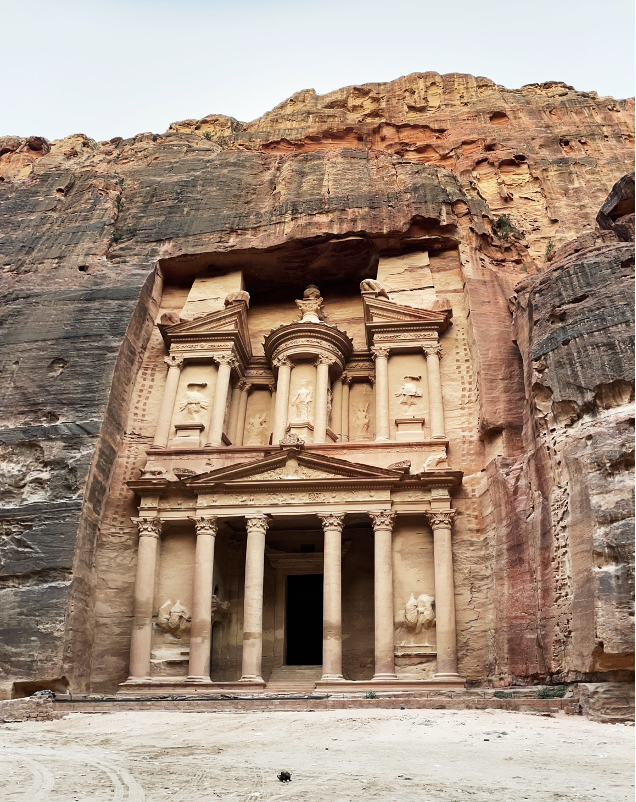The Endangered Archaeology in the Middle East and North Africa (EAMNEA) project team, in partnership with the Petra National Trust and funded by the UK Arts and Humanities Research Council, and the Cultural Protection Fund, recently launched their 'Recommendations for a Cultural Heritage and Climate Change Policy in Jordan'.
They unveiled the policy at a series of events on climate change and cultural heritage, hosted in late October in Amman, Jordan, by the Petra National Trust (PNT) and the Irish Embassy. Her Royal Highness Princess Dana Firas, President of PNT, opened the proceedings which were attended by over 70 heritage professionals from Jordan the UK, Ireland and the State of Palestine, including representatives from the International Council on Monuments and Sites (ICOMOS).
Created through collaboration between Jordanian, Palestinian, and UK researchers, the draft policy draws on studies from World Heritage sites including Petra, Jericho, As-Salt, and the Baptism Site. It explores how climate change intersects with traditional land management, heritage conservation, and tourism pressures, in line with UNESCO’s Policy Document on Climate Action for World Heritage. As such these recommendations are setting a regional benchmark for sustainability and resilience.
Climate Change: A Growing Threat to Cultural Heritage
According to UNESCO, one in six cultural World Heritage sites—including Petra—faces serious threats from climate change. A World Bank report recently identified Jordan as particularly vulnerable to its impacts, especially water scarcity. These challenges are intensified by a lack of accessible tools, methodologies, and coordinated strategies for managing risk and resilience in the heritage sector.
Dr Bill Finlayson, Director of EAMENA says: “The impact of climate change on cultural heritage is a rapidly emerging issue but we should not only focus on the threats and mitigation measures, but seek to learn lessons of traditional and successful resilience from past practices of land management.”
A Collaborative Vision for Resilient Heritage
The policy recommendations have been reviewed with a broad network of stakeholders, including government agencies, NGOs, local government authorities, World Heritage Site managers, and community representatives, ensuring that the outcomes reflect diverse perspectives and on-the-ground realities.
This initiative underscores a shared commitment to protecting the region’s rich cultural legacy from the accelerating threats of climate change. By combining scientific research, policy innovation, and local expertise, the Petra National Trust and its partners are laying the groundwork for a sustainable future for heritage management in Jordan, Palestine, and beyond.
Dr Will Megarry, from Queen's University Belfast and on the ICOMOS Working Group on Climate Action added: "From wind-swept coasts in Ireland to the deserts of Jordan, climate change is threatening some of our most exceptional places. These sites are not merely ancient ruins they define who we are and give us a sense of belonging. This week (in Amman) provides an opportunity to connect, learn from one another, and identify practical, meaningful ways to safeguard our shared heritage for future generations."

Al Khaznah, Petra, Photo by H. Abedalhaleem